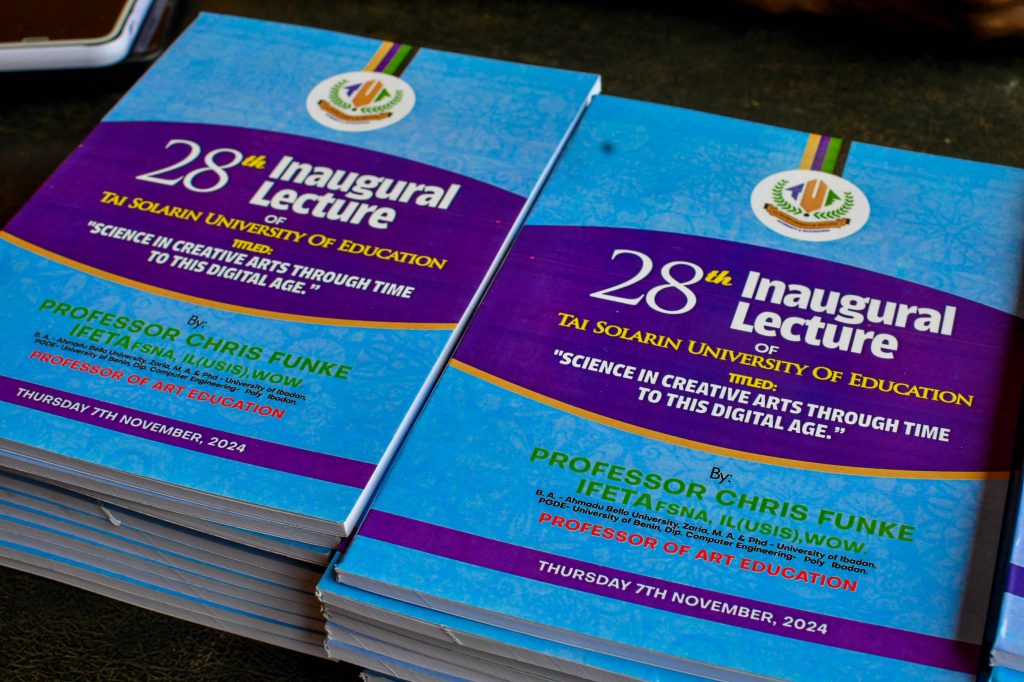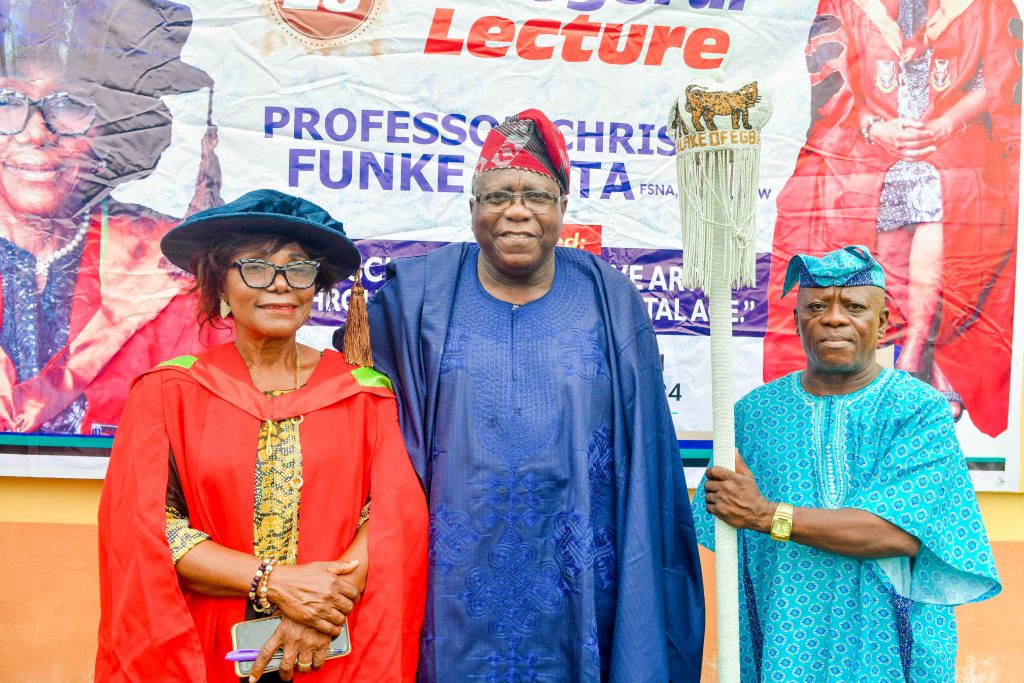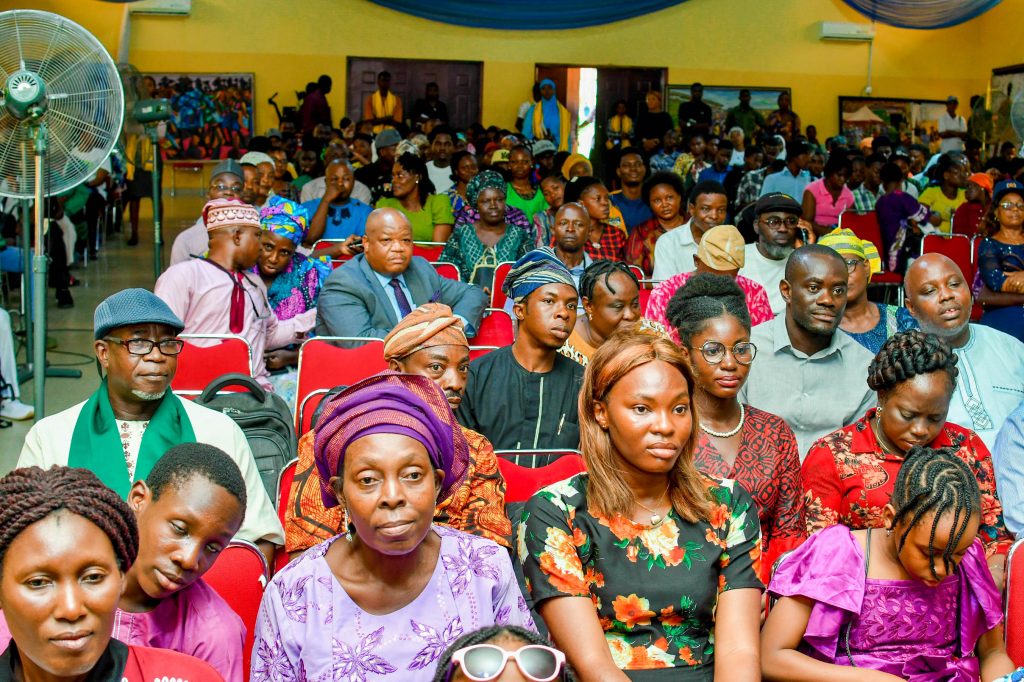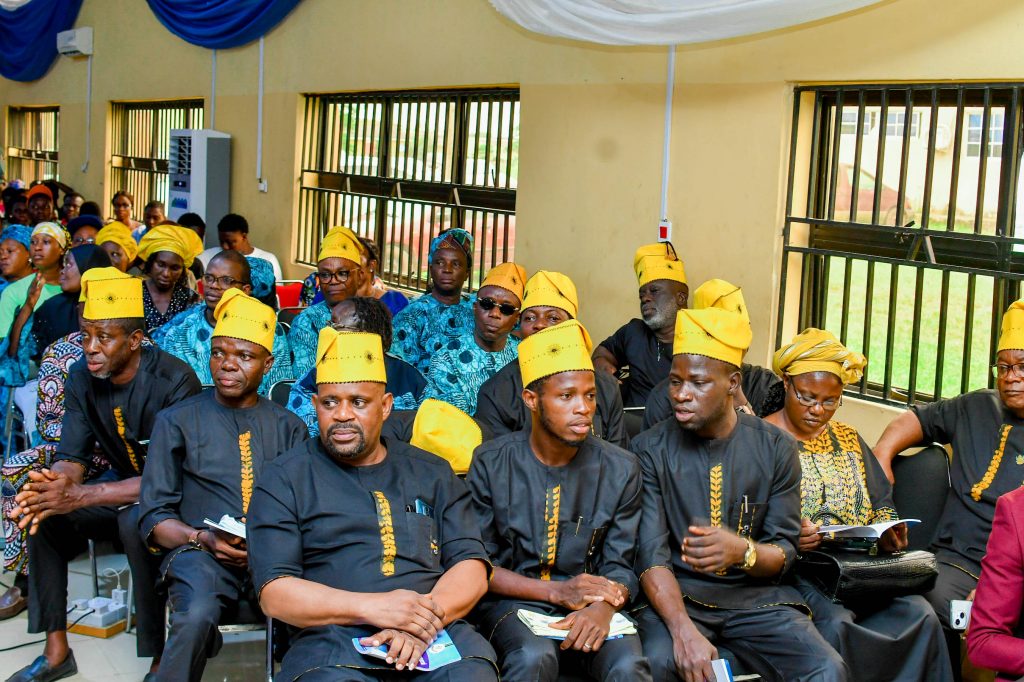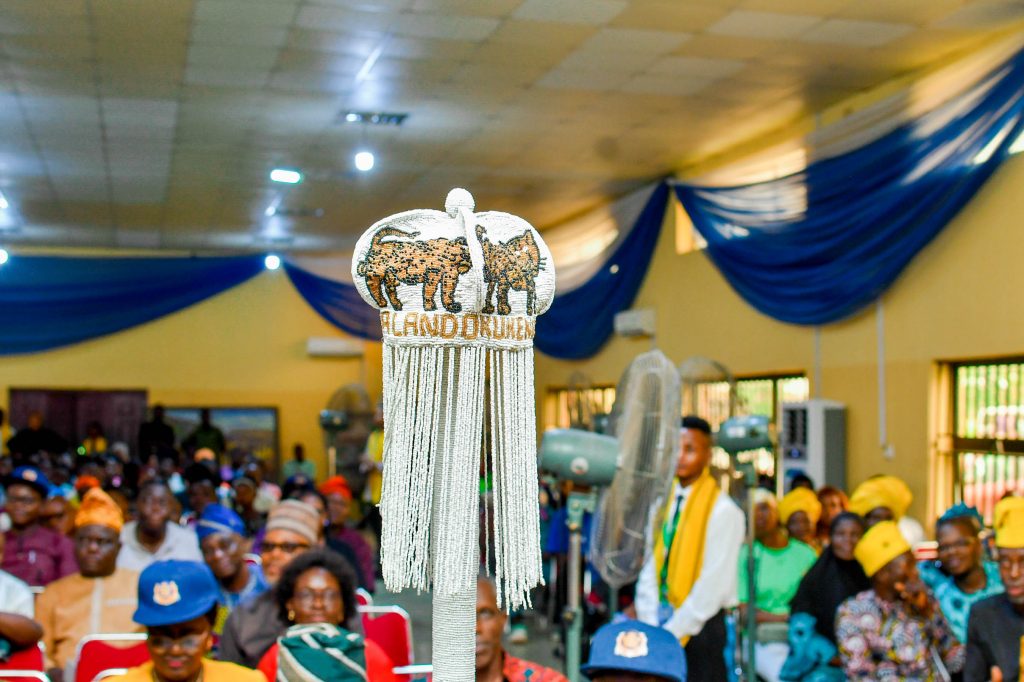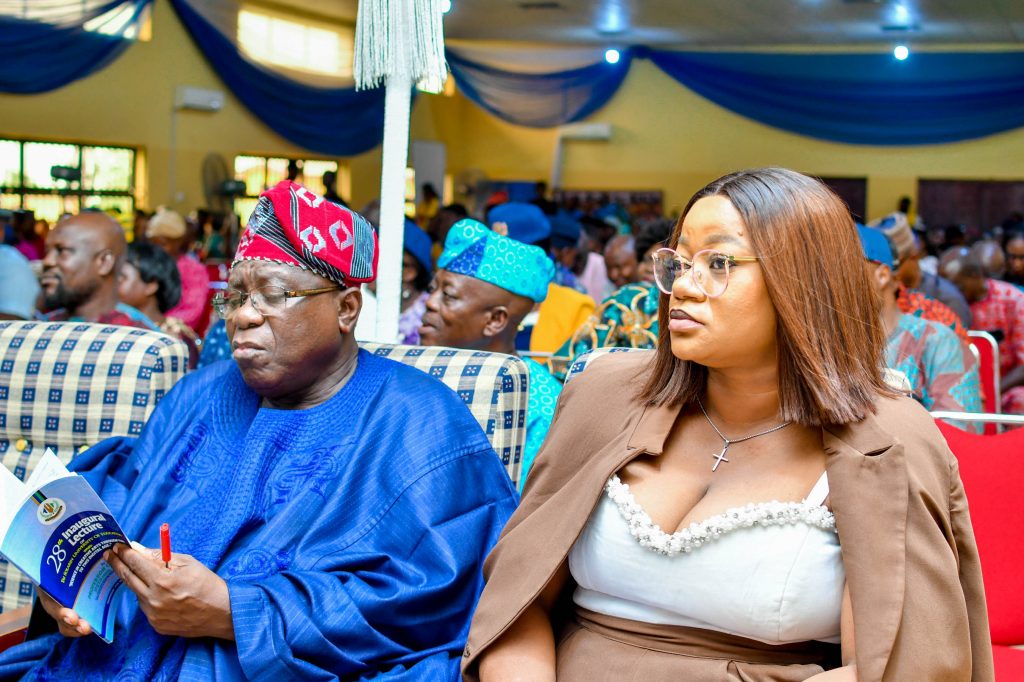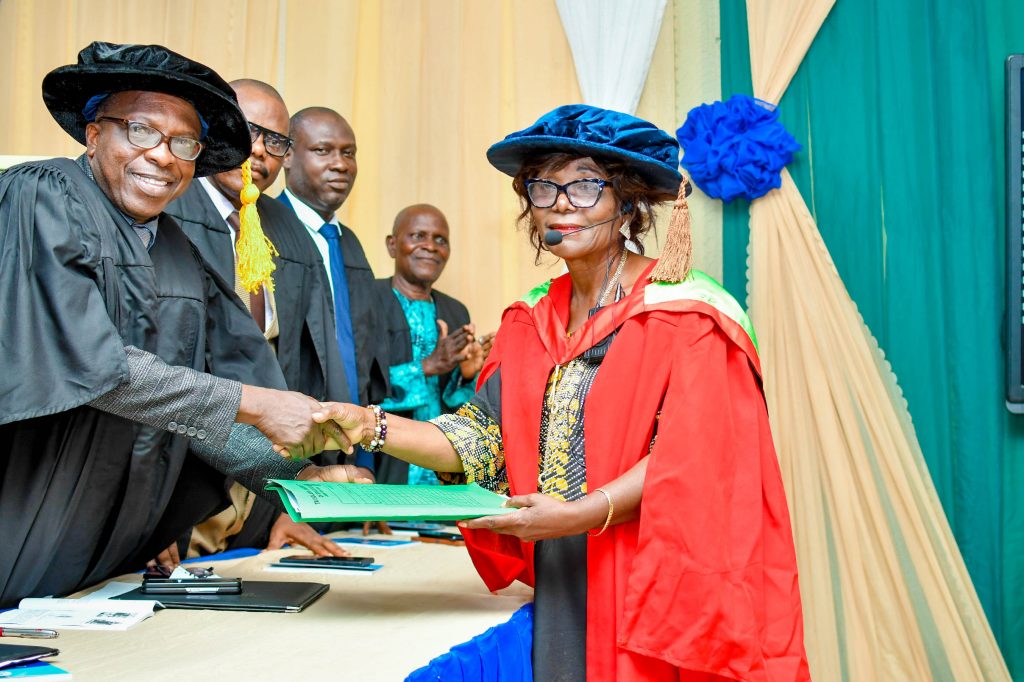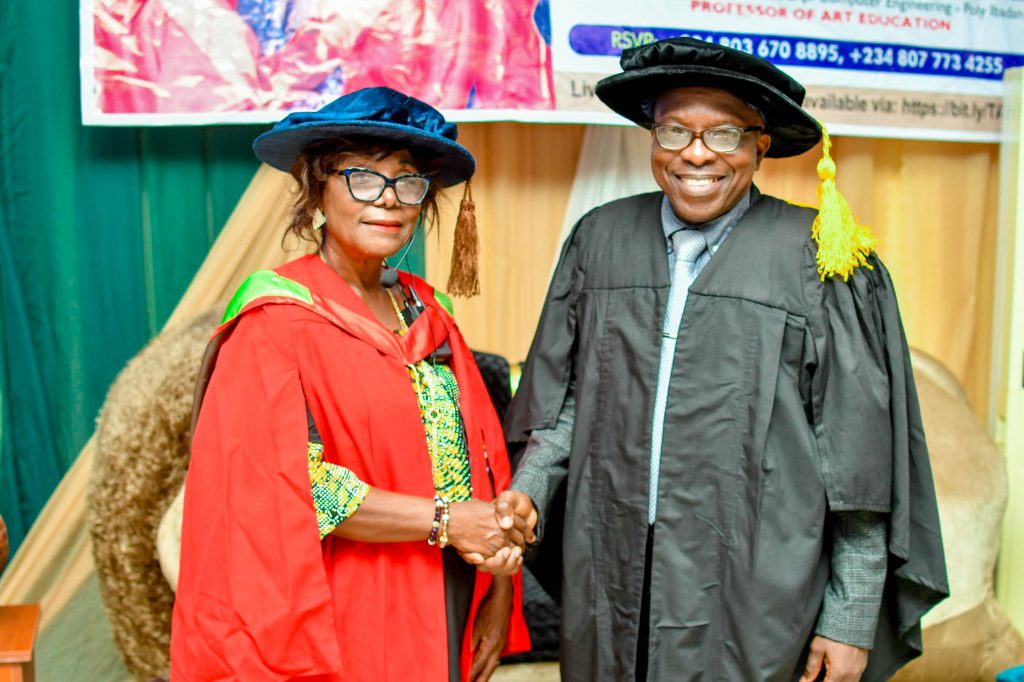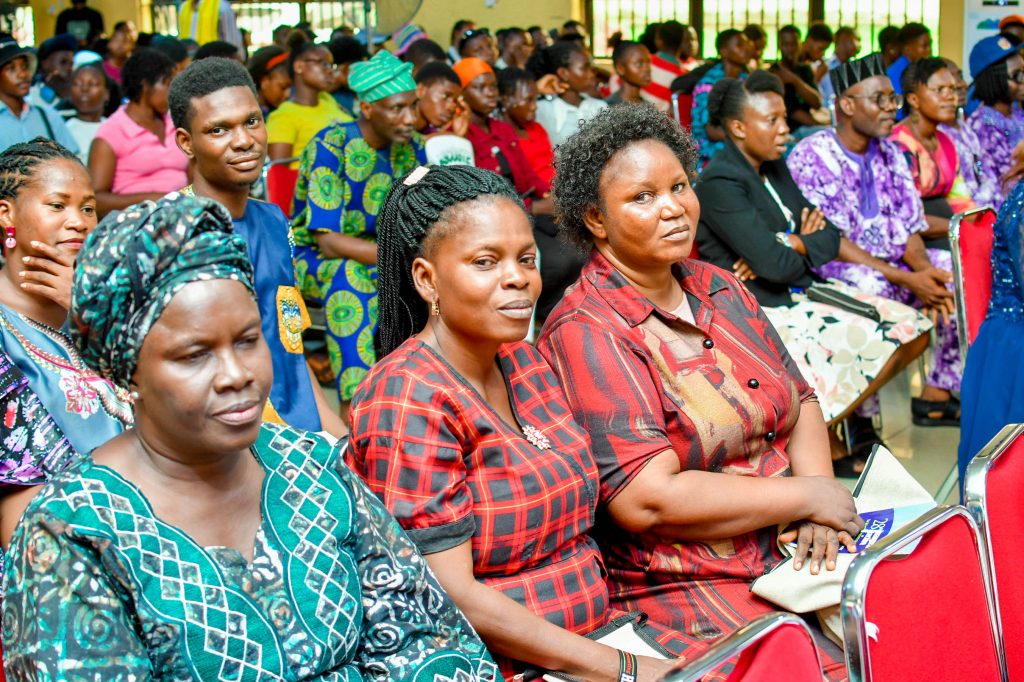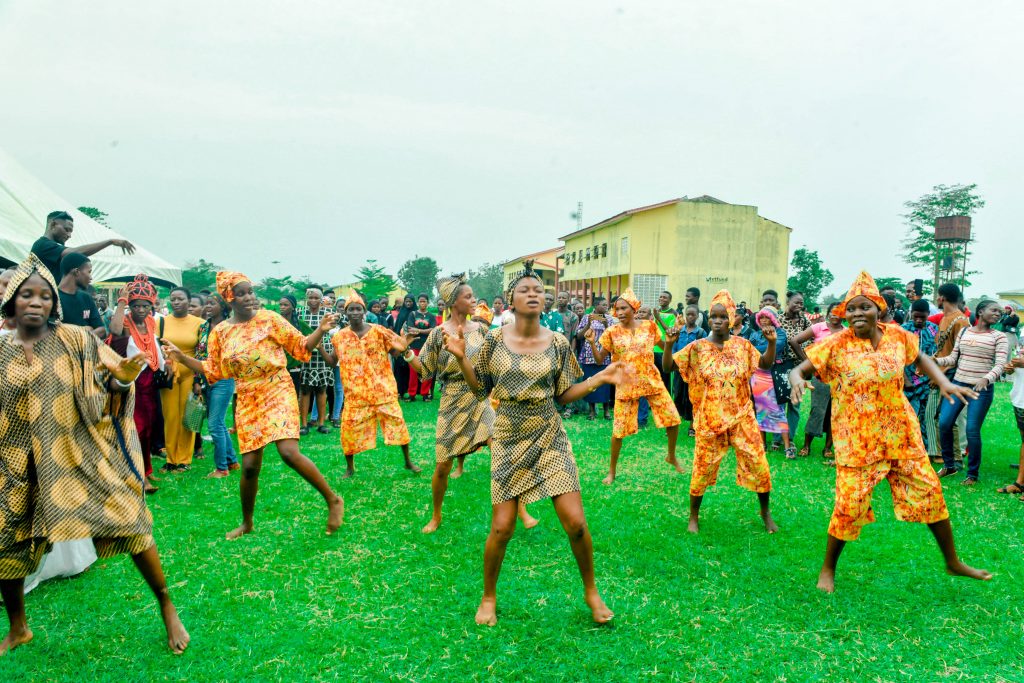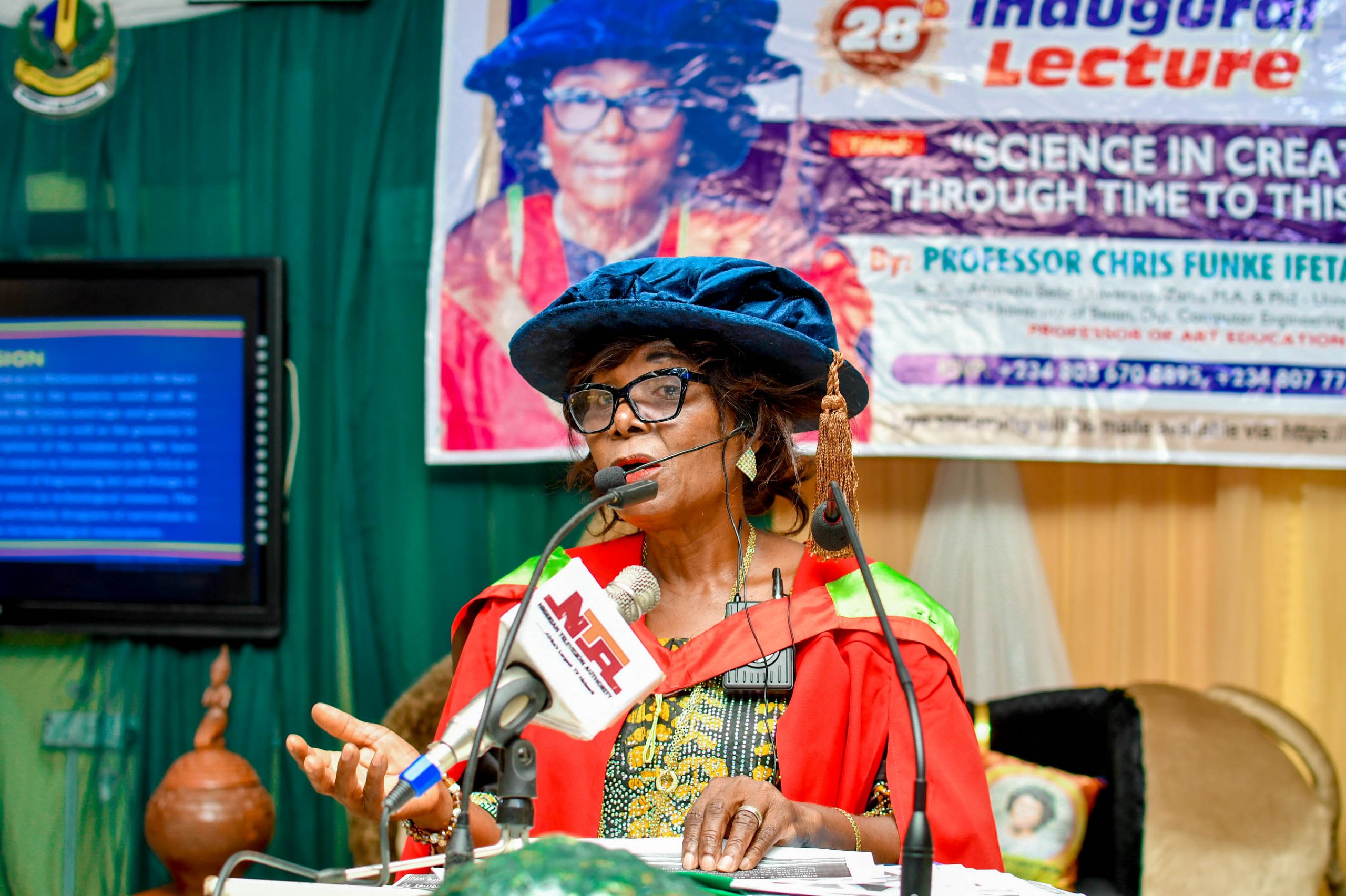A Professor of Art Education, Prof. Chris Funke Ifeta, has urged the Federal Government to urgently address other tertiary Institutions with particular priority to Polytechnic Education to support Nigeria’s technological advancement.
Prof. Ifeta made this call during the 28th Inaugural Lecture of her University, titled “Science in Creative Arts Through Time to This Digital Age.”
During her lecture, Prof. Ifeta emphasized the need for all levels of Government to revitalize Polytechnic Education, reflecting on the 1970s, when Nigeria’s Tertiary Education system was designed to meet the Country’s technological aspirations. She noted that polytechnics have long played a critical role in technical training and suggested that restoring their prominence would be essential for sustainable development.
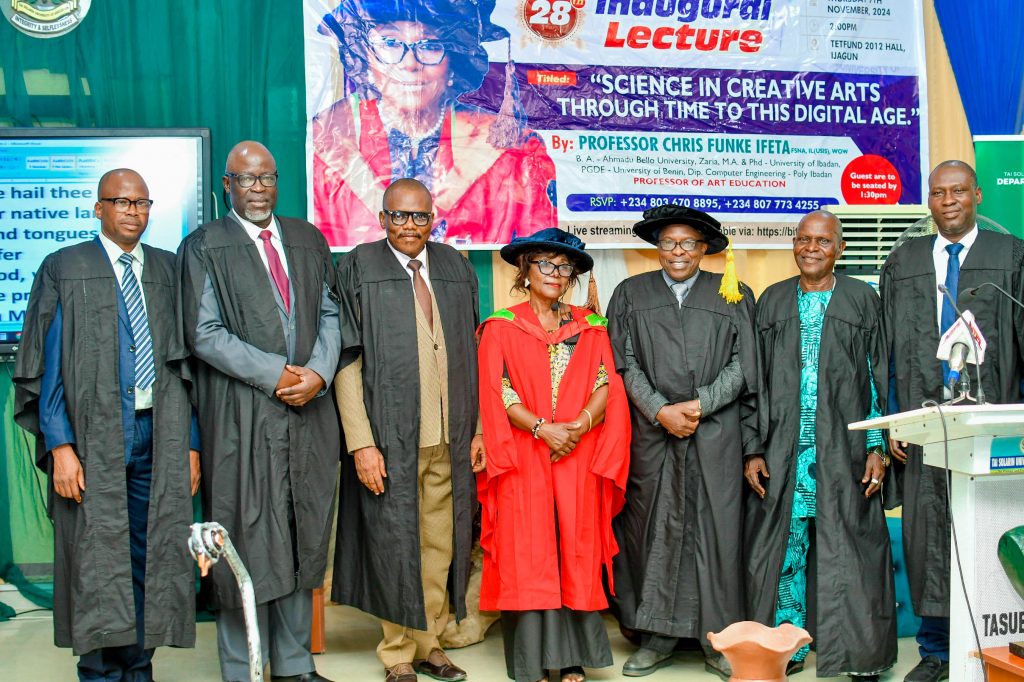
Prof. Ifeta questioned the promotion criteria for Fine Arts lecturers, noting that it was often based on the number of research papers published rather than the number of artworks created. She argued that evaluating creative output should be a priority in an arts-focused field.
Discussing the relationship between Mathematics and Fine Arts, Prof. Ifeta, a renowned sculptor, explained that Mathematics has been an integral part of African traditions long before its application in the Western world. She particularly made reference to the fact that Mathematics is also embedded within the Ifa system, where the Odu-Ifa symbols represent a profound reservoir of knowledge akin to binary code in modern computing.
Prof. Ifeta encouraged the Yoruba people not to abandon their cultural heritage, especially Ifa, which she believes holds solutions to many societal challenges. She expressed concern about the lack of Government oversight in mineral mining, which has led to valuable gemstones being sold cheaply while finished products are sold internationally at high prices.
Prof. Ifeta advocated for investment in jewelry making and suggested that jewelry be included as a sub-course under Sculpture in Fine Arts Departments.
Regarding ceramics, she stressed the need for re-engineering and collaboration between Fine Arts, Chemistry, and Engineering Departments to produce high-quality glazes and ceramic equipment. She attributed the low quality of Nigerian ceramics to the absence of essential Science courses in Fine Arts programs, which has led to dependence on imported ceramic goods.
“With proper exposure to modern technology, local potters can create ceramics that rival those of Chinese artisans,” she said.
Finally, Prof. Ifeta expressed concern for the future of traditional textile art, particularly Adire, warning that without curriculum reform, Nigeria’s Adire traditions could be overshadowed by Chinese mass production. She called for urgent action to preserve and promote this art form.
The event attracted experts in the Creative Arts profession, the Representative of the Alake of Egbaland, the Fimosakin of Egbaland, Prof. Oyekanmi Oyesiku who was also the first Vice Chancellor of the Institution and a renowned Art Collector, Prince Oluyemisi Adedoyin Shyllon, family and friends.
